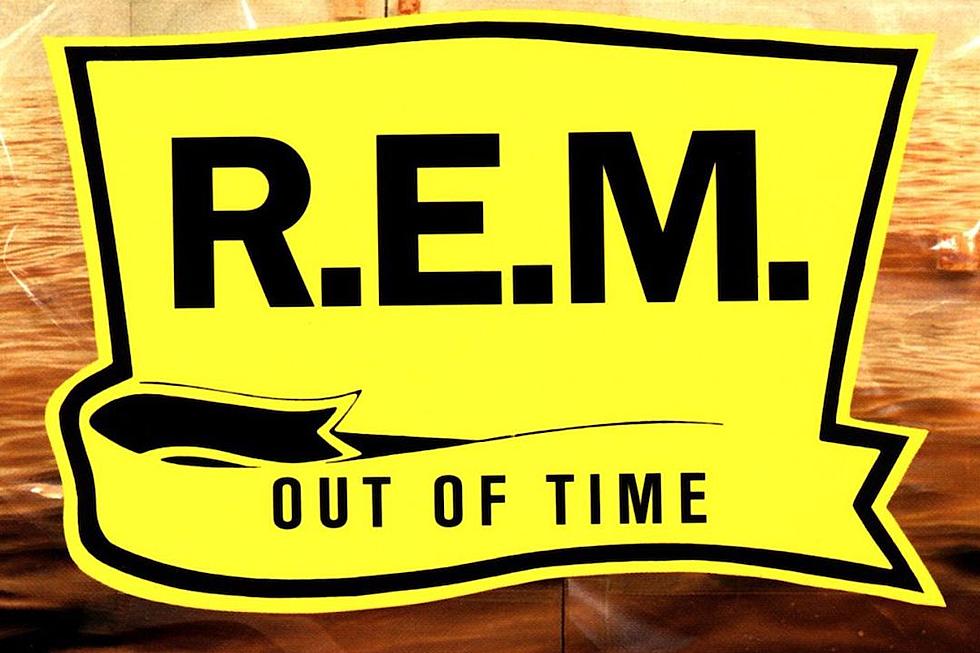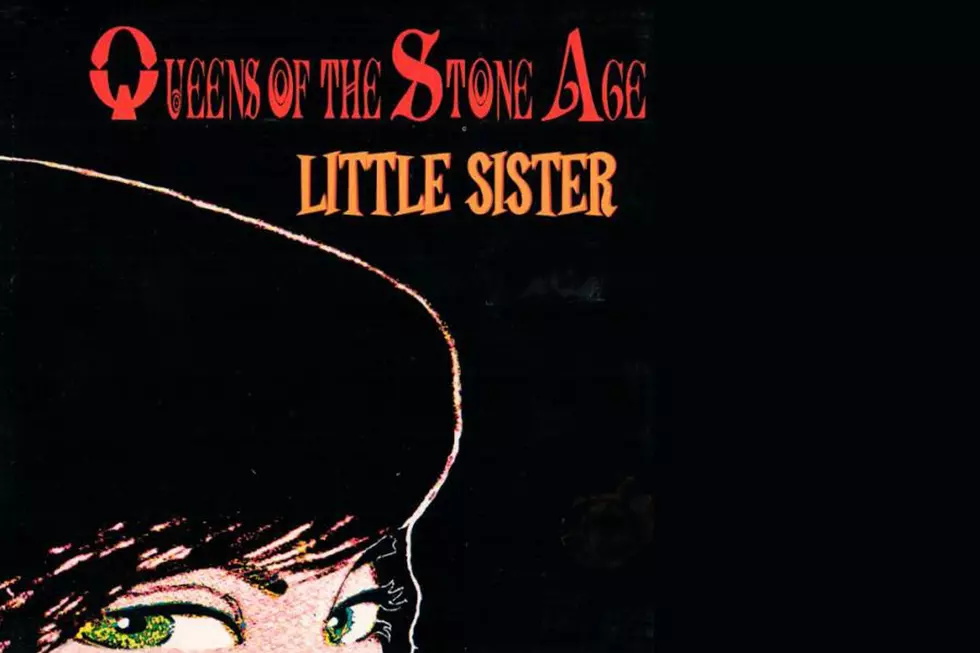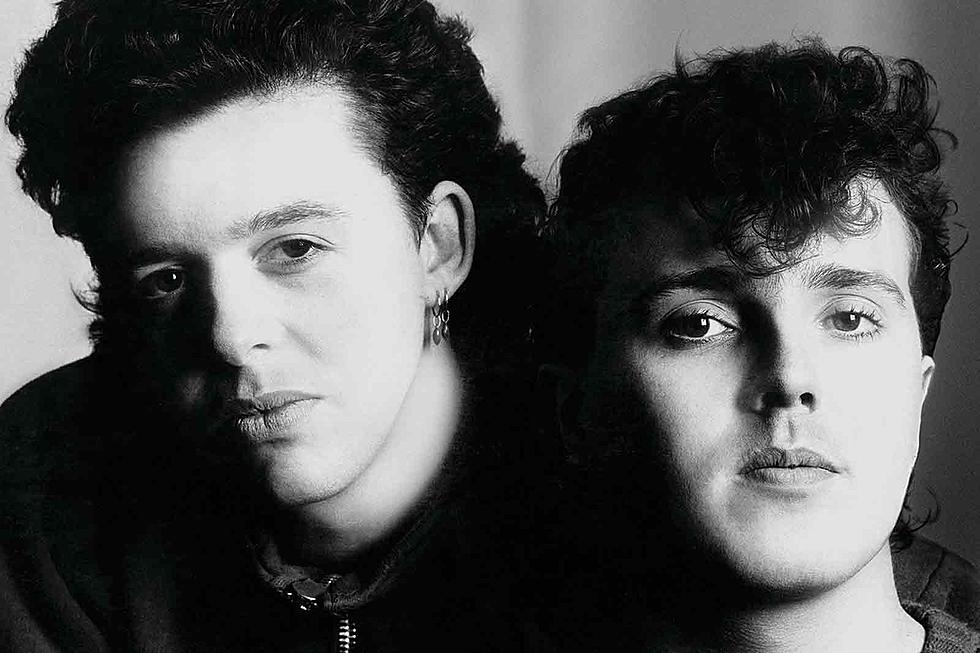How Ultravox! Combined Synthesizers, Reggae, Violins, Punk on Debut LP
Ultravox! helped create new wave before the first wave of British punk had even landed. Despite recording a debut album before one British punk single had been released, the London-based group was moving past punk in its music, incorporating the style’s energy while blending it with art-rock touches.
Like the Sex Pistols, John Foxx and pals worshiped the New York Dolls. Like the Clash, Ultravox! loved reggae. But the band also had obvious affinity for krautrock, Roxy Music, David Bowie and the Velvet Underground. Singer Foxx began the group in the mid-’70s as Tiger Lily, recruiting bassist Chris Cross, guitarist Steve Shears, drummer Warren Cann and keyboardist/violinist Billy Currie.
“It was going to be an English version of the Velvets mixed with the New York Dolls,” he told the Arts Desk in 2016. “I felt the Dolls were directly in line with the Velvets. Roxy Music had picked up on the Velvets, so had Bowie. The Velvets were the only band which had got close to blues, modern blues.”
The group ditched the Tiger Lily moniker when the boys were signed to Island Records. Foxx chose “Ultravox” because he “wanted us to sound like an electrical product.” The exclamation point (which was later dropped) was a tribute to krautrock band Neu!
Future super-producer Steve Lillywhite was instrumental in landing them a record deal. As a friend of some of the band members, the young sound engineer honed his producing skills by recording the quintet’s demos.
“He had just graduated to being an engineer from a tape op and he was happy for us to come in to the Marble Arch studio he worked in at the weekend and evenings and record us,” Foxx recalled. “We worked there for about six months stealing time. Steve became one of the gang.”
Although Island saw potential in those demos, the company wasn’t quite sure that such an inexperienced producer should be helming an album with such a wild mix of sounds. Island, Lillywhite and Ultravox! reached a compromise.
“I’d never made a record before, so it was quite understandable,” Lillywhite told Tape Op in 2013. “The band said, ‘Well, we like Roxy Music.’ Brian [Eno] is a fantastic man. He doesn’t spend all his time in the studio, but when he’s there he really utilizes it. I’m much more involved, and I micromanage like crazy.”
With Lillywhite and Eno co-producing (though mostly working on separate tracks), Ultravox! moved forward, recording what would become the band’s self-titled debut for a few weeks in the summer of ’76. If Lillywhite’s touch gave the recordings a crisp warmth, Eno’s influence can be felt in the band’s use of space and synths. As Ultravox!’s keyboardist and violin player, Currie felt the impact of the former ex-Roxy Music man’s technical advice.
“The string synth called the Elka was the first I liked and used,” the multi-instrumentalist told 2 Up-Top. “A full-on synth I didn’t get to use till 1976 when I played Eno’s Mini Moog on the first Ultravox! album.”
Plenty of rock bands had been using synths, but the London punk groups were all guitar-driven bands (especially in 1976). Through both his ex-band’s influence and his production work, Eno was shepherding Ultravox! through a groundbreaking album – one that would prove as important to new generations of pop musicians like Gary Numan and Duran Duran as Roxy had been to Ultravox!.
But the sound wasn’t the only significant element to Ultravox! Foxx’s lyrics went hand-in-hand with the jagged synthesizers, describing a destroyed world (“Saturday Night in the City of the Dead”) a dangerous society (“Wide Boys,” “Slip Away”) and the rise of technology (“I Want to Be a Machine”). For the punk fans most drawn to the genre’s social commentary, Ultravox! brought that element too.
Listen to “Saturday Night in the City of the Dead”
Island Records unleashed Ultravox! in the U.K. on Feb. 25, 1977, just as the first British punk albums were being issued. Contemporary reviews unfavorably compared the debut LP to the group’s feistier live performances and the public didn’t seem to care. It’s a common story for albums that are ahead of their time.
Impressed with Lillywhite’s contribution to the record, Island hired him as a staff producer. He worked on Ultravox!’s follow-up album, then produced releases by Johnny Thunders, Siouxsie and the Banshees, Peter Gabriel and U2 – all of which established him as a major player in new wave, rock and pop music.
Eno went from one collaboration to another, teaming with Bowie on the hallowed “Berlin Trilogy” and then producing Talking Heads’ albums. Eventually, he’d work again with Lillywhite.
Ultravox! “was the first time I’d met Brian, and then I didn’t see him again until [U2’s] The Joshua Tree,” Lillywhite said. “I get on really good with him. He’s one of the brainiest people in the world. We have a great relationship.”
In the meantime, Ultravox! kept moving forward – recording albums that made up for sales with influence. The group would eventually hit the big time, but not until the 1979 departure of Foxx, who pursued a solo career while watching Ultravox (no exclamation point) score big hits with Midge Ure as the band’s leader. Over time the Foxx-era Ultravox! recordings have become more appreciated, often the result of other musicians singing their praises.
“I was a big fan of John Foxx when he was in Ultravox! in the late ’70s,” Gary Numan said. “Ultravox! were like the blueprint for what I was trying to do in the early years and John Foxx was my hero. I thought he was a fantastic, enigmatic frontman. I really loved what he did.”
25 Bands Snubbed by the Rock and Roll Hall of Fame
More From Diffuser.fm









